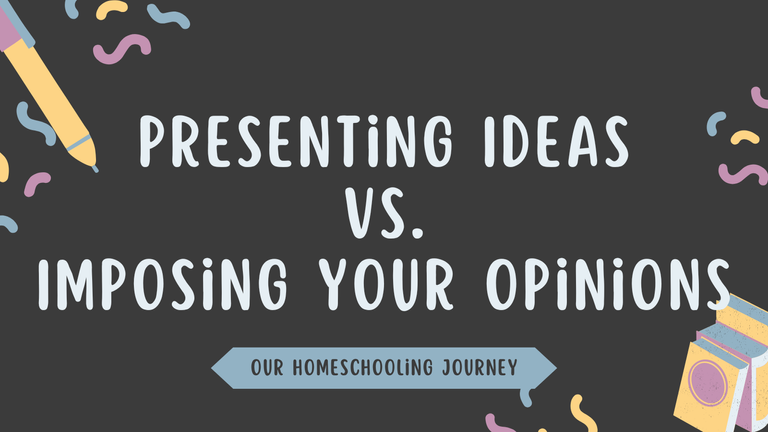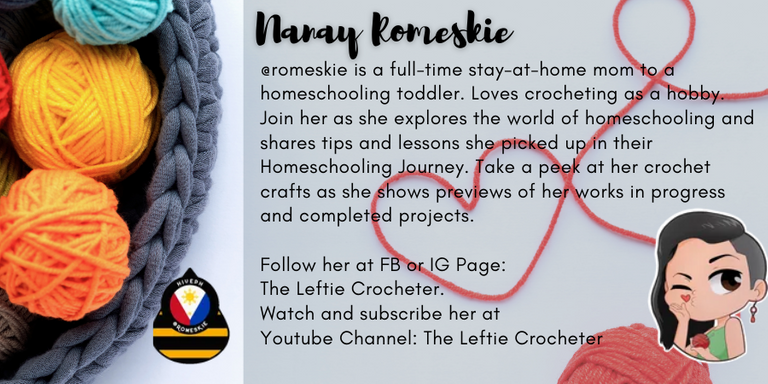
I've discussed in my previous blog entries about my Charlotte Mason readings that educators are limited to three tools when educating children: the atmosphere of environment, the discipline of habit, and the presentation of living ideas.
When I read through the section about living ideas, I learned that ideas are the food of the mind. It is the sustenance by which our mind grows and thus, children should be presented with a various feast of ideas. That is why the curriculum of a child's education should be wholistic. It helps build those neurological connections in their brain, making them able to create relations to their learnings.
Ideas, according to Charlotte Mason, is a spiritual germ endowed with power to grow and to produce after its kind. Did you ever notice that when you have an idea in mind, you simply cannot help but continue thinking about it, then it grows on you. There is nothing else to do with it but to continue and let it develop until you have in your head a web of ideas all rooted from that one simple idea you had in the first place.
Children needs to be presented with a lot of ideas at their young age. This should be the main reason why they need to learn. An idea can spark a revolution, it free a nation, it can jumpstart innovations and inventions. All it needs is for it to grow in the fertile soil of the children's young minds.
After our lessons, I don't look at the number of written works she has done or the drawings she made. I am more concerned whether my little learner felt inspired by any of our readings. It makes me feel accomplished if I see her pondering and thinking about the things we read. She sometimes would cry because the story we read was too painful. I often hear her talk to her father about the ideas she picked from our book. I like her Hey, did you know.... moments because I can feel the enthusiasm in her voice. Then I would her her make remarks like Hmm, I wonder if...
That's the keyword there. She wonders. Her curiosity is ignited. The ideas she picked are there in her mind, growing, developing. Helping her make conclusions and opinions based on what she knows.
But there are some things that an educator ought to be careful of when presenting ideas. One of those things is imposing their opinions. We all know what opinions are. Those are what we think of a certain topic, a certain person. Those are conclusions we made based on the ideas and facts that are available to us. Our duty as parent-educators is to present ideas and to make sure to put our own opinions aside. This doesn't mean that we should just keep our opinions to ourselves. We should still voice it out should the discussion lead to it, but that's just it. Our opinions should not be in the frontline of our study time.
Our children look up to their parents and the grownups around them. Any opinions we impose to them, they will most likely automatically take as facts and ideas which they would chew and digest. Our goal is for them to be able to formulate their own opinions, not to feed them ours. We should be teaching the facts about a certain personality in history, not what we think about them. Saying "I don't like this emperor because he was the one who lead the empire to its downfall" versus "The empire's downfall started when this certain emperor did this and that" are two different things. The first statement translates: We don't like this emperor. While the second statement translates: This is what this emperor did during his reign. What do you think about it?
When the teacher starts talking about their opinion, the student loses their chance to talk about their thoughts. In our homeschooling journey, I start our discussion with my daughter narrating the passage we read. Once she's done, I ask her leading questions like What do you think should have been done differently in the story? I may follow up that question with If that were you, what would you have done? If she's still up for it, I'd ask her how she felt about the story or a certain character or event.
And that is followed by a rich discussion. I like it when she asks for my opinion. I like it even more when we have opposing thoughts about a certain thing. It makes her feel comfortable that even when we have different views, she can openly speak up about it. She understands that it is okay to not have the same opinion about certain topics. It trains her to have healthy discussions about opposing points of view.
It takes a lot of practice and self-awareness for me to ensure that I don't open our discussion with my opinions. I am getting the hang of it and now, I watch her take the lead most of the time. It takes a lot of energy to be intentional in your parenting and homeschooling. But so far, I like what I am seeing. I am witnessing my daughter's personality unfold. She lets me in on her thoughts and this helps me know her even more.
I like to end this post with a quote from Charlotte Mason's Home Education.
“Give your child a single valuable idea, and you have done more for his education than if you had laid upon his mind the burden of bushels of information; for the child who grows up with a few dominant ideas has his self-education provided for, his career marked out”




Children see presenting ideas as a way of giving them different opportunities or options that they can pick or choose from
It gives them wide range of experience and also options too
That’s the best cos imposing ones idea on them will only limit their options and maybe way of thinking
Children who are told about every good and bad thing in this way, then the education of the children will be very good and they will be able to live a good life in the future. You are working very hard.
So true! Hello @romeskie, I found your post thanks to this curation.
What I like to share is that I already observe the selection of a book or if and when it is read as an imposition. As a father with experience of Self-Directed Education, it is important to me to clearly emphasize and live my own opinions. Even by choosing book titles. But at the same time to be open to other opinions and inspirations. Because let's be honest, opinions are also disseminated in every book or medium and not so much experiences. Because experiences are gathered with the senses and not with words. And I immediately think of Jinan KB and his observations. But I didn't want to point that out. And so another thought can now emerge and develop.
Thanks for your inspiration. Have yourself a wonderful week!
!invest_vote
@anli denkt du hast ein Vote durch @investinthefutur verdient!
@anli thinks you have earned a vote of @investinthefutur !